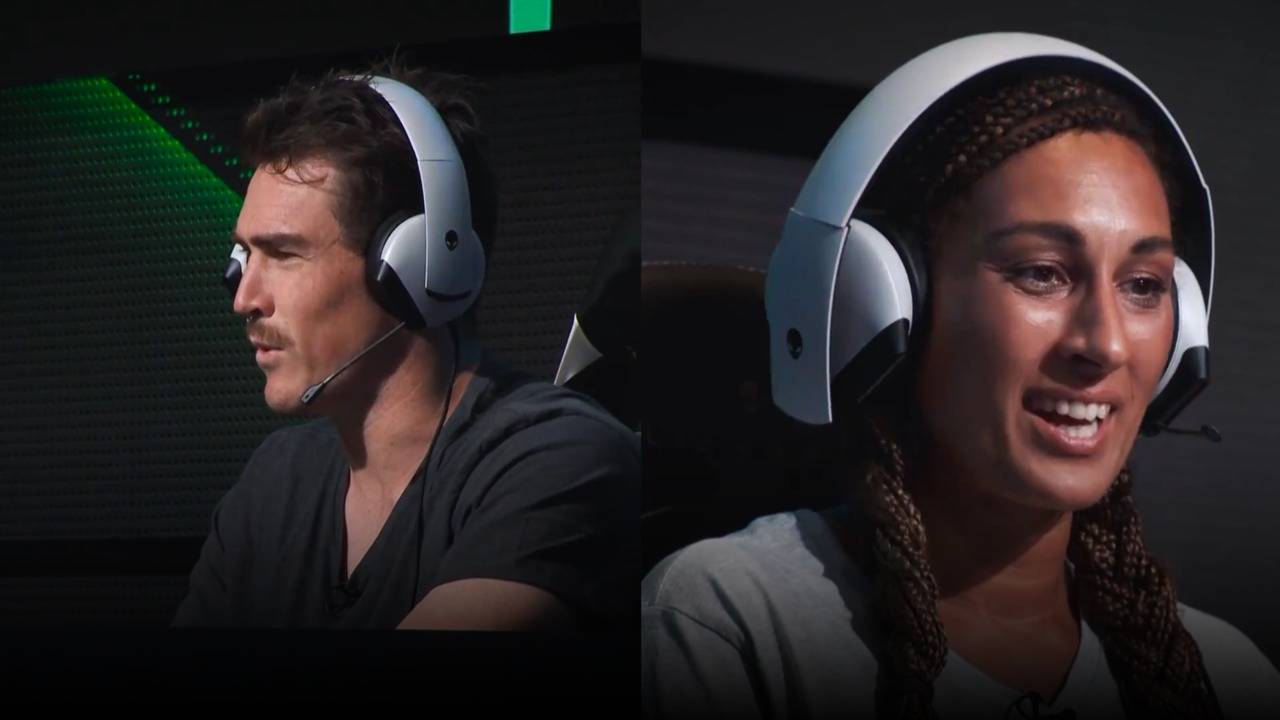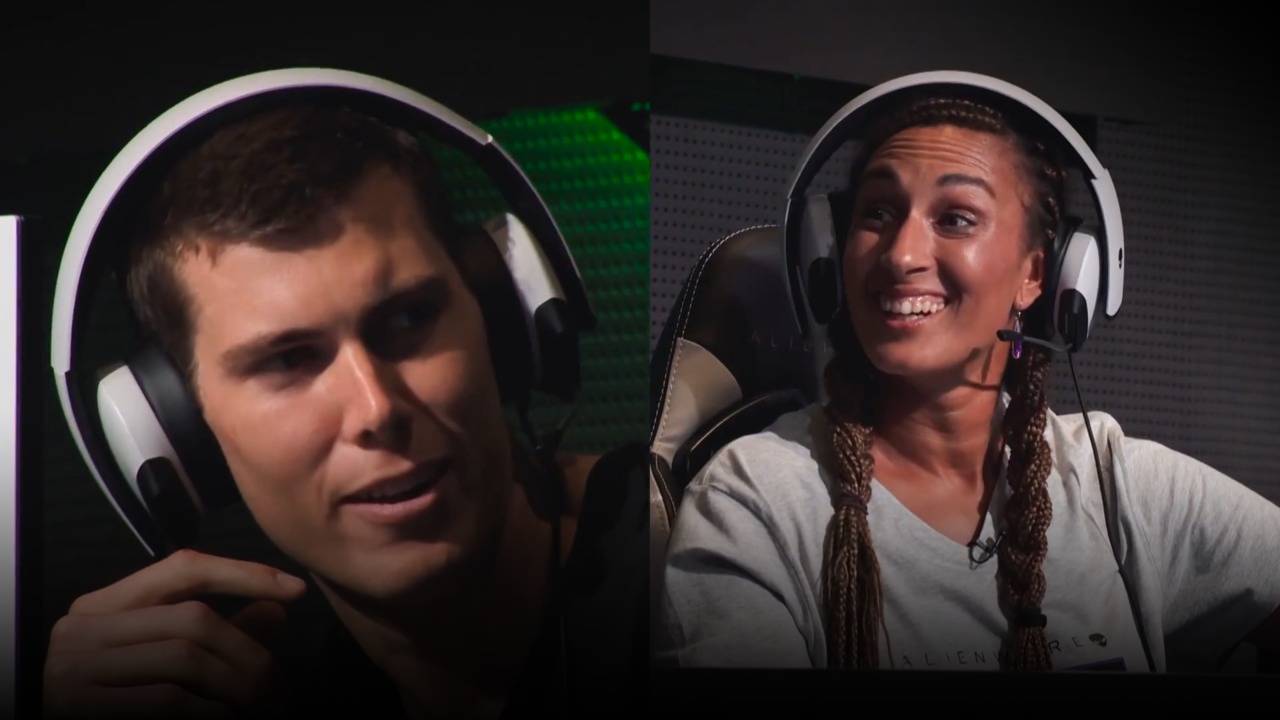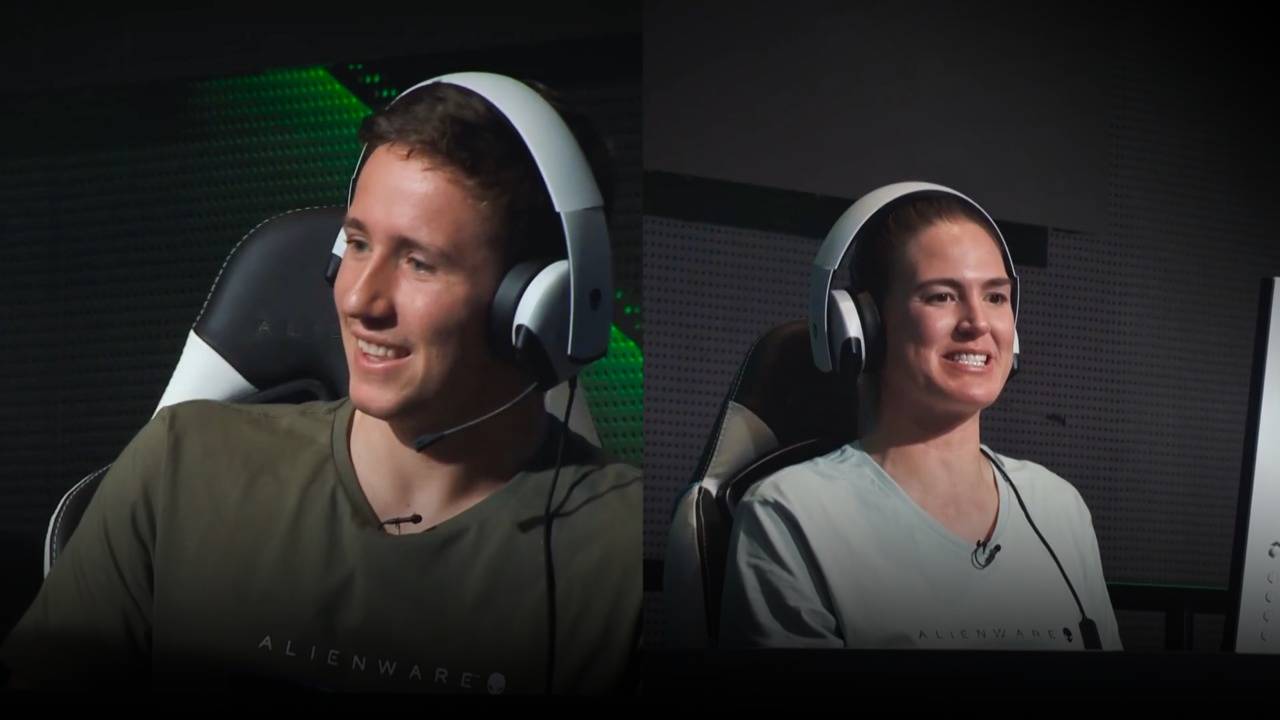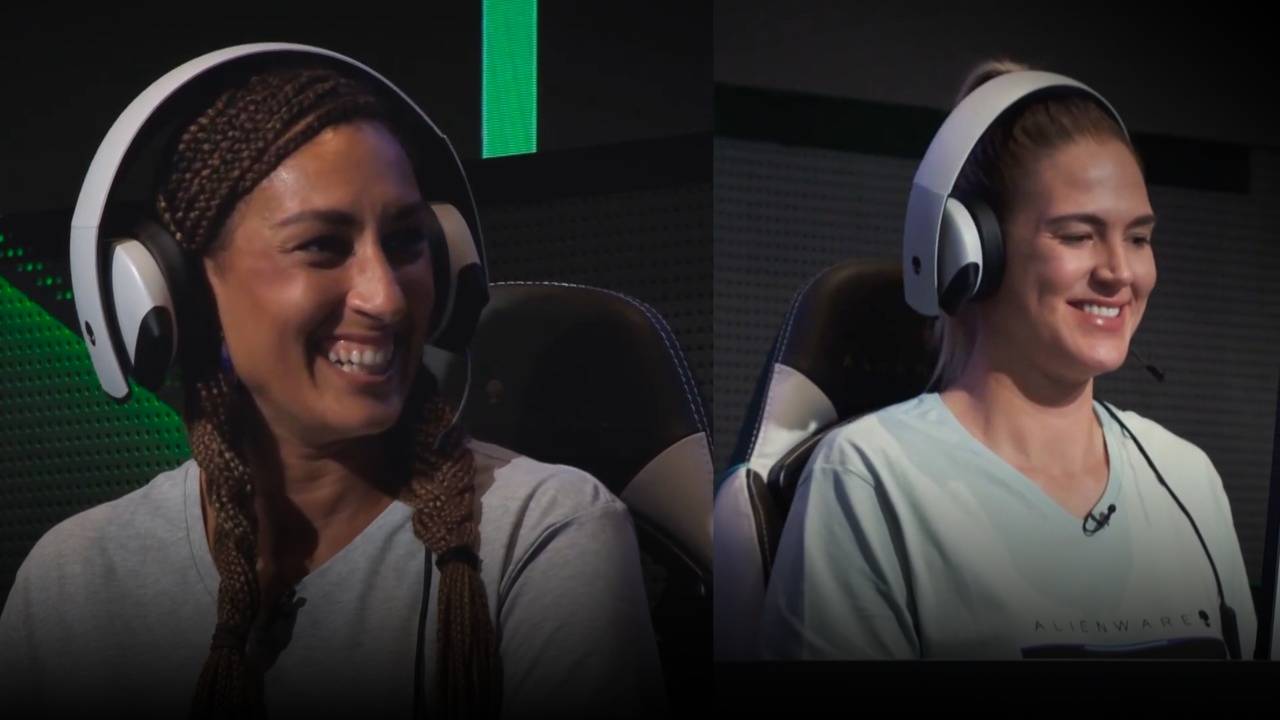For the team
Melbourne is home now but when I was growing up it was Bournemouth, in the south-west of the UK. My Mum’s family goes back five generations in the area. My father is from St Lucia.
Both my parents were very sporty. Mum was on the national tennis circuit at one stage. She was a pretty handy windsurfer, too. Dad was into a range of sports. Living in a seaside town, we spent a lot of time sailing and kayaking and doing other water sports.
I was into basketball and athletics as a youngster, but my main focus was trampolining. I reached a fairly high level – literally – and started having some pretty serious injuries. I had a fractured cheekbone once and spent some time in a neck brace. It was time to move on.
My school friends were playing netball and I wanted to join them. From there, one thing led to another. I played for the school, the local club, got picked for the county, played youth league, and then was picked for England under-17s at the age of 14.
A year later, I was selected in the senior England squad and got my first cap at 16. It all happened incredibly quickly, which is probably why I say that netball found me rather than I found it.
Truth is, no one really knew the extent of what I was dealing with and how emotionally draining it was.
I adjusted fairly well to senior netball, despite being so young. I was always independent and mature and never afraid to throw myself in the deep end.
A good example of my independent streak was when I told my mother I wanted to travel alone to Iceland when I was just seven. Mum had some friends there, they had kids my age and I decided I wanted to visit. My mother sat me on a plane and over I went. It was fantastic.
I had no hesitation joining the England squad. Even though it was a high participation sport back then, the national team had a low profile and I didn’t really know who was in the team. It was just about playing, meeting new people and enjoying myself.
I think another thing that made it a bit easier for me was netball being a team sport. My experiences of athletics and trampolining were that I became extremely nervous with the intense focus on the individual.
I still get nervous playing netball but, being part of a team, I find myself focusing on making sure I don’t let anyone down. I concentrate on playing my part for the team. Some people thrive on individual sports, but I’m definitely more a team-sport person.

Though I felt settled in the England squad, I was frustrated that for a year or two I had to watch as our team suffered some big defeats to Australia and New Zealand. I kept thinking, ‘Why? Why am I not getting my chance?’
Later, I was able to appreciate that international netball is not just given to you on a platter. You have to earn your spot and it takes a lot of hard work.
It was an important time for me, to see our team getting beaten like that. As much as it hurt, it was a chance to listen and learn from the people around me.
When I finally did get my first opportunity, it was against Irene van Dyk, who was one of the world’s best goal shooters at the time. There was definitely no soft landing!
What if we won?
It’s been a rocky journey with England over the years. We’ve been close to achieving our goals on many occasions. The disappointment that probably sticks out the most was the 2014 Glasgow Commonwealth Games.
We basically were beating Australia for 59 minutes and 30 seconds and ended up losing by one goal. Then it was the same against New Zealand. We were ahead until the last 20 seconds or so and lost by one.
Then we played Jamaica for the bronze medal and got beaten by about 15 goals. That tournament took a long time to get over.

It’s times like those that made the win at the 2018 Commonwealth Games so special. From Glasgow to the Gold Coast, it was a complete change in emotion from utter devastation to jubilation.
I’ve only played a couple of times in teams that I just knew were going to achieve something extraordinary. It’s hard to define exactly what turns a good team into a champion team. There’s no substitute, of course, for hard work. And you do need a bit of luck. But I think there is a special chemistry that comes from working well together, being friends, having jokes, a kind of team camaraderie that comes along only rarely.
We had that chemistry in our England team last year. But the campaign didn’t start well. We had a camp in Sydney and played two club sides, the Giants and Swifts, and lost by 30 goals or so. This was the English national side. It was hardly a good sign!
What was important, I think, was that we didn’t panic. I remember we actually laughed about it. ‘How funny would it be, after losing to these teams, if we won the gold medal?’ we joked. ‘What a story that would make!’
After those games, we arranged a boat trip around Sydney Harbour. It was brilliant. We had nice food, we were all jumping in the water, just putting some perspective on things. It was important to appreciate each other without the pressure of netball around. I think that, as much as anything on the court, helped prepare us for what lay ahead.
Once the competition started we were all on the same page and just got on with the job. We ticked off each game and, as much as there was a sense in the final against Australia that the result could go either way, there were just these looks on the faces of everyone on our team. You could just tell there was no way we were going to lose that game.

Time to celebrate
I can reveal now that we did have a secret weapon during that tournament. Well, at least, I did. It was my brother, Raoul, who was an incredible help to me on and off the court.
Raoul and I are very tight. He’s been in Australia for much of the past couple of years. He did a working holiday, spent some time in New Zealand, but now lives with me in Melbourne. Raoul is eight years younger than me. As we grew up, I was something of a mother figure to him, but we’ve now become really great mates.
Raoul has been the rock that I’ve needed. Having him around has been really important for me, especially with the dramas I went through privately. I remember, during the Comm Games, looking up into the stand and seeing him. It gave me a very comforting feeling. And it wasn’t hard to spot him – he’s 6’11”.
As well as the incredible support he provided me off the court, Raoul was a great asset for us on the court. Before we played Jamaica in the semi-final, our coach Tracey Neville asked if he could come to training so we could use him as a sort of target.
The Jamaican goal shooter, Jhaniele Fowler, is something like 6’8”, so practising against Raoul was a way to mimic what we would be coming up against.

Team England sorted Raoul out with accreditation for the day so he could come into one of the training venues. We did warm-up drills with him. He used his body and elbows, he schooled me a bit – but it was really useful as we entered the business end of the tournament.
Winning that gold medal was a big thing for netball in England. After the Games, those who weren’t playing Super Netball returned to the UK and were greeted at Heathrow with roses and flashing cameras, an entire welcoming committee.
The next week there was a big parade, they went to the BAFTAs and enjoyed all sorts of celebrations. Us lot back in Australia were slogging it out doing a pre-season, but we were all just so happy the reaction was so positive.
I got my chance to celebrate towards the end of last year. When the BBC Sports Awards came along and there was word that we were going to be named team of the year, I made sure I was there for it.
It was brilliant to go along with the girls. It was a fitting way to end a remarkable chapter and look towards the next one.
More about: Collingwood Magpies Netball | Diamonds | England Roses | Gold Coast 2018 | Sponsored | Sunshine Coast Lightning | Super Netball | Women's Sport




 Load More
Load More